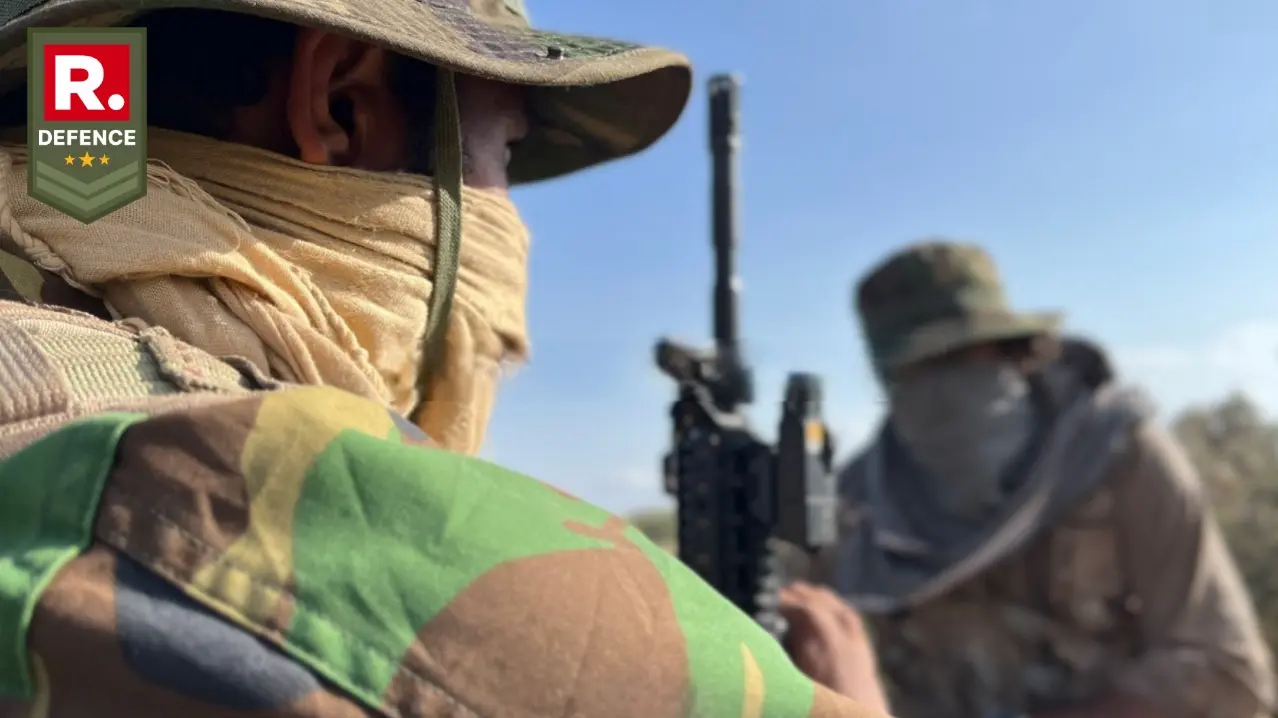Updated 1 April 2025 at 17:27 IST
Pakistan Experiencing Bloodiest Ramadan in a Decade as Baloch Rebels Unify Under One Command
Pakistan has witnessed its bloodiest Ramadan in a decade, with militant attacks soaring to 84 incidents from just 26 last year.
- Defence News
- 5 min read

Islamabad, Pakistan - Pakistan just endured its bloodiest Ramadan in a decade, with rebel attacks surging to unprecedented levels, exposing the state’s growing inability to control insurgent violence. According to the Pak Institute for Peace Studies, at least 84 attacks were recorded during the holy month, a staggering increase from just 26 attacks last year. Once upon a time, some rebel groups would observe temporary ceasefires during Ramadan—but those days are long gone. The country’s internal security is unravelling, and Pakistan’s leadership seems utterly unprepared for what’s coming next.
The Pakistani Taliban (TTP), which ended its ceasefire with the government in November 2022, has been one of the primary actors behind the resurgence of violence. Meanwhile, the Baloch Liberation Army (BLA) has rapidly expanded its capabilities, striking with more precision and deadlier force. The group’s March 11 train hijacking in Balochistan, which killed at least 25 people, proved just how bold the insurgents have become. If Islamabad thought it could wish away the insurgency, BLA has just reminded them how deep their failure runs.
Pakistan’s Security Forces Take a Beating as Trust in the State Crumbles
The Pakistan Institute for Conflict and Security Studies (PICSS) paints an even grimmer picture. The think tank recorded 61 attacks in just the first three weeks of Ramadan—more than the entire month’s count from the previous year. It also confirmed that 56 security personnel were killed between March 2 and March 20, making this the deadliest Ramadan for Pakistan’s forces in a decade. Meanwhile, banned groups like Lashkar-e-Islam are reemerging, signalling that the Pakistani establishment’s counterterrorism strategy has completely collapsed.

But the real disaster lies in Pakistan’s intelligence network—or rather, the lack of it. Security failures have been blatant, from the train hijacking in Balochistan to a series of high-profile rebel offensives across Khyber Pakhtunkhwa. The state has not only failed to prevent attacks but has also lost the trust of its own people.
Advertisement
Balochistan: A War Zone the State No Longer Controls
Balochistan has always been a ticking time bomb, and March 2025 proved that the separatist insurgency is now in full-scale war mode. On March 1, unidentified assailants assassinated two senior leaders of Jamiat Ulema-e-Islam-Fazl (JUI-F) in the Khuzdar district. No one claimed responsibility, but in Balochistan, the truth is obvious: the government’s grip on the province is slipping by the day.
Then, on March 2, the separatist coalition Baloch Raji Aajoi Sangar (BRAS) dropped a bombshell: they are unifying their forces under a single military command. This isn’t just another ragtag insurgency anymore—this is now a structured, organized, and well-coordinated war machine.
Advertisement

BRAS announced that its forces, including the Baloch Liberation Army (BLA), Balochistan Liberation Front (BLF), Baloch Republican Guards (BRG), and Sindhudesh Revolutionary Army (SRA), will now function as a Baloch National Army. Their strategy? Shift from scattered guerrilla attacks to a fully coordinated armed resistance against Pakistan and China.
This means Pakistan won’t just be fighting off random insurgent ambushes—it will now face a unified front of Baloch separatists, equipped with modernized guerrilla tactics, intelligence disruption operations, and large-scale military offensives. BRAS has also openly declared that China’s economic projects in Balochistan—like Reko Diq and Saindak—are now primary targets.
Pakistan’s Foreign Policy Failures Come Home to Roost
Pakistan, of course, responded the only way it knew how: by blaming Afghanistan. On March 13, the Foreign Office claimed that the Jaffar Express hijacking was planned from Afghan soil, with attackers in direct communication with Afghanistan-based handlers. But Kabul immediately rejected the accusations, calling them “baseless” and telling Pakistan to “focus on its own security failures instead of shifting blame.”

It’s a familiar routine. Pakistan has spent years playing the double game, supporting rebels for its own strategic interests while pretending to fight terrorism. But that game has backfired spectacularly. Now, the very groups it once harboured have turned against it, and its attempts to shift responsibility onto Afghanistan aren’t fooling anyone anymore.
A Brutal Reality Check: Pakistan’s War Isn’t Ending Anytime Soon
By March 28, Baloch insurgent attacks had entered their third consecutive day, with BRAS claiming responsibility for 48 coordinated operations. Pakistani security forces lost multiple outposts, mineral transport convoys were ambushed, and military installations came under heavy fire.
BRAS justified the offensive by pointing to March 27, 1948—the day Pakistan annexed Balochistan by force. This isn’t just a resistance anymore; it’s an all-out rebellion, and Pakistan is struggling to keep up. For years, Islamabad ignored the deep-rooted grievances of Balochistan. It treated the province like a colony, plundering its resources while using brute force to silence dissent. But no insurgency can be crushed with force alone—especially when the state’s own failures are fueling it.

Pakistan’s leaders now face a hard choice: either acknowledge their mistakes, engage in meaningful dialogue, and regain public trust—or watch as the country sinks deeper into a security nightmare of its own making. The real question is whether they are capable of making the right choice before it’s too late.
Watch- Balochistan Protest: Clashes Erupt Between Police & Protesters
Published By : Yuvraj Tyagi
Published On: 1 April 2025 at 17:27 IST
